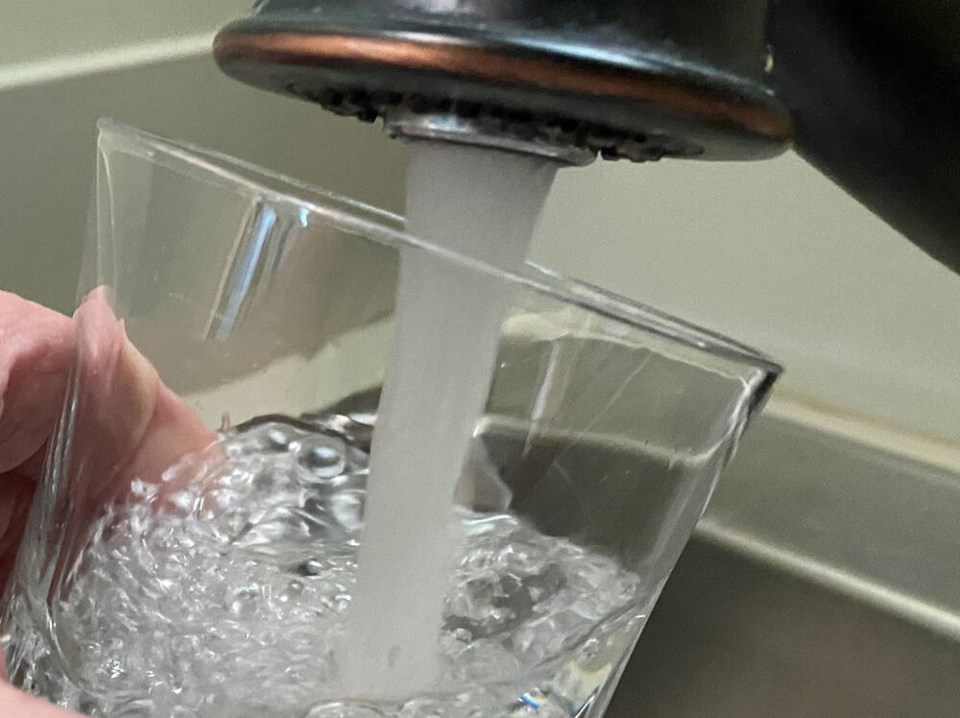The regional drinking water supply met or exceeded the provincial water quality regulations and the federal Guidelines for Canadian Drinking Water Quality.
That’s according to a recent report to Metro Vancouver’s Greater Vancouver Water District (GVWD), which outlines the 2023 GVWD Water Quality Annual Report.
The report notes an analysis included approximately 166,000 tests conducted on samples collected from the GVWD source reservoirs, water treatment plants and transmission system, as well as microbiological water quality of member jurisdictions’ systems supplied by the GVWD.
“The annual report outlines how Metro Vancouver’s water quality monitoring program continues to fulfill its role in confirming that the multiple protection barriers are maintaining high quality drinking water for the region. In 2023, the water quality of the treated drinking water was excellent,” the report adds.
A City of Delta report last summer noted the city’s drinking water also had a passing grade.
That report noted that Delta, in 2022, provided drinking water in compliance with the BC Drinking Water Protection Act and the BC Drinking Water Protection Regulation.
Staff conducted approximately 1,324 water sample tests from the city’s drinking water distribution system, which were obtained from 34 sampling stations distributed throughout Delta. Samples were tested on-site for temperature, turbidity and chlorine residual, while an additional sample was sent to Metro Vancouver’s laboratory where it was tested for turbidity, chlorine residual, heterotrophic plate counts, total coliform bacteria and E. coli.
In addition, tests for metals, vinyl chloride and disinfection by-products were conducted at several sampling sites, while detailed physical and chemical analysis were performed on the artesian well water sourced from Watershed Park.
Based on the testing results from the program, Delta’s drinking water met the provincial requirement.
There are currently approximately 76 km of asbestos cement (AC) pipe being used in the municipal water system, but the city does not test for asbestos in the drinking water.
The city’s report for 2023 will be coming out in the following weeks.
Delta’s 2024 flat rate utility sees an increase by a total of $95, or 7.5 per cent, from $1,262 for a single-family home in 2023, to $1,357 in 2024.
The water portion of the bill increased by $25 from last year, to $655 in 2024. That amount is up $100 from five years ago and includes water purchased from the GVWD as well as operations.
Another staff report notes Delta’s 2024 net water budget is $35.7 million, a 7.9 per cent increase over 2023.
Bulk water purchases from GVWD account for approximately 6.6 per cent of that water budget. The city’s 2024 cost for purchasing water from Metro is estimated to increase by approximately $1.8 million, or 8.2 per cent.
In 2022, Delta still received all its drinking water from the Seymour and Capilano watersheds but could also receive water from the Coquitlam watershed in certain conditions.
The engineering department that year undertook a project to introduce water from water wells at Watershed Park into the regular distribution system for part of the city to help offset the rising cost of purchasing water from Metro Vancouver.
The water is pumped from deep wells in Sunshine Hills into the 64 Avenue Reservoir and then distributed to the lowland area south of 64 Avenue. The engineering department notes the system is relatively inexpensive to operate as it relies on gravity to supply the area south of 64 Avenue from the reservoir.
According to the city, pumping from those wells in the first year resulted in savings of approximately $500,000.



